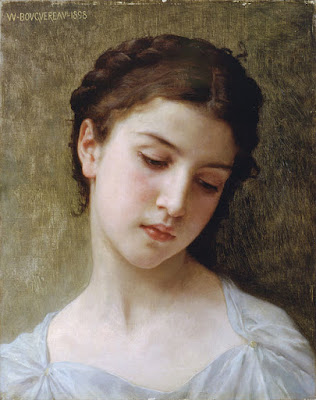and learns how to become grotesque
and malign with the glaring intention
to harm every fellow femme or fowl.
to harm every fellow femme or fowl.
All the manly men demanding
subservience, much more gratitude
and adoration for being a Hero to
Humanity.
Mind the Gap, they kindly warn us
of the space wedged between
World and Human-as if we could easily
misstep
or fall in.
or fall in.
When an atom was split,
when the uneaten apples fell,
we made matters worse
by being casual observers.
When women went to work,
when women drove-
when they chose-
the family would decay.
The women wanted,
the men desired,
the pairs all
spun
out.
The women wanted,
the men desired,
the pairs all
spun
out.
"Translation is the art of failure"
Umberto Eco famously noted.
"Metaphor is ritual sacrifice, it kills the look-a-like"
suggested Rae Armantrout.
Between two
worlds
worlds
the Space
keeps us Safe.
Painting by Lawrence Alma-Tadema, 'Women of Amphissa' c. 1887 [Public domain], via Wikimedia Commons.
keeps us Safe.
Painting by Lawrence Alma-Tadema, 'Women of Amphissa' c. 1887 [Public domain], via Wikimedia Commons.






_-_WGA07062.jpg)
